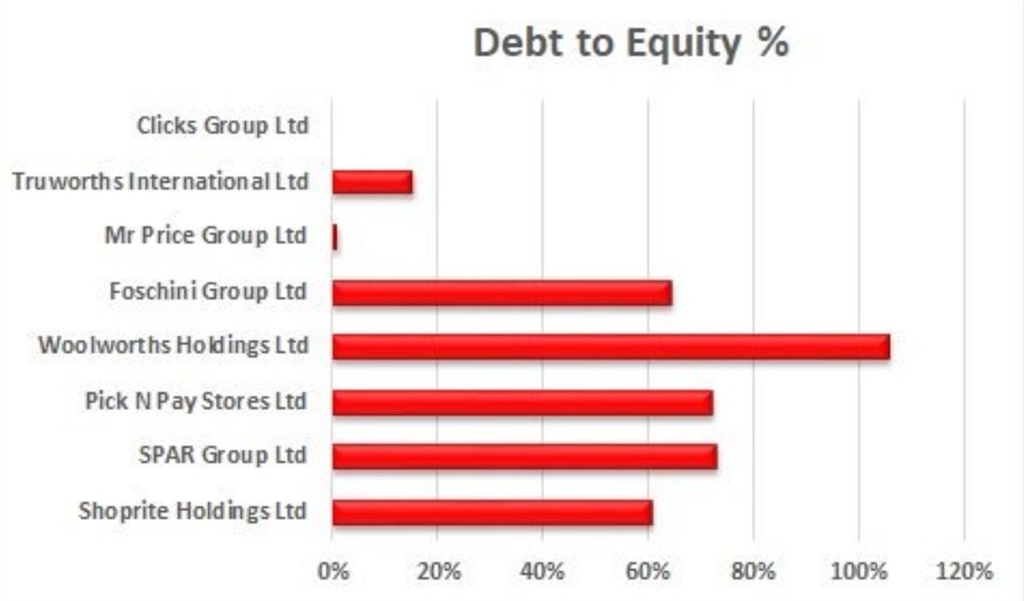This eye-popping graph shows Woolworths is drowning in debt – while Clicks and Mr Price owe basically nothing
Shoprite, SA’s largest private-sector employer, has now lost a fifth of its value in the past two weeks as investors digest its recent results. One of the biggest shockers they are grappling with: Shoprite’s net debt rocketed by 132% to more R8 billion in the past year.
Especially worrying is the fact that it has borrowed more than R7 billion in US-dollar-denominated loans. When the rand slumps, repayments in dollar start to bite.
The trader Karin Richards said that Shoprite’s new debt position is unheard of for the company, and tweeted that for the first time ever she has some concerns about Shoprite's funding.
“Net cash is down to below R500 million. African revenue and US dollar debt is a dangerous combination.”
Shoprite is not the only retailer struggling with debt. Pieter-Jan van Niekerk, principal and investment analyst at PSG Old Oak in Cape Town, has compiled a graph comparing the debt burdens of SA’s largest retailers:

This is measured as their total debt to equity (all of the company’s assets minus its total liabilities). Not included is Dis-Chem, which has an 89% debt-to-equity ratio.
But the biggest relative debt burden belongs to Woolworths, which has debts now bigger than the total equity in the company. This is mainly due its massive investments in the Australian business David Jones.
In 2014, Woolworths bought the brand for more than R21 billion. It has since written down more than half of the value of the company as it continues to struggle in Australia. It has also invested large amounts into the refurbishments of the Australian stores, says Van Niekerk.
Spar, which has operations in Ireland, Switzerland and wants to expand in Poland, also has sizeable debts. By comparison Truworths, which has been punished harshly for the struggles of its UK shoe chain Office, has smaller debt exposure.
On the complete other side of the scale: Mr Price and Clicks, with very little debt at all. Both have largely remained focused on South Africa.
“These are businesses that ploughed back their profits into their local operations,” says Van Niekerk.
He thinks Mr Price, which is now trading at its worst level since 2017 after a miserable trading update, offers investment value. “It’s a transparent business – what you see is what you get.”
More than 80% of Mr Price’s sales are in cash.
Shoprite
Van Niekerk isn’t that concerned about Shoprite. “It has a plan for dealing with its debt, including selling off some of its properties, and renting it back.” It has also secured local funding to cut its reliance on offshore loans.
Also, while Shoprite’s African businesses outside of SA may currently be struggling, this can change in the next couple of years, says Van Niekerk.
Still, he warns that debt can be a killer in the retail business. Typically, margins are very thin – if costs start to escalate, and sales drop, repaying debts can quickly become a problem.
News Category
- International retailers
- On the move
- Awards and achievements
- Legislation
- Wine and liquor
- Africa
- Going green
- Supplier news
- Research tools
- Retailer trading results
- Supply chain
- Innovation and technology
- Economic factors
- Crime and security
- Store Openings
- Marketing and Promotions
- Social Responsibility
- Brand Press Office
Related Articles

Empowering South African households through gro...

SPAR shares practical tips to beat food inflation

South African motorists could be paying up to R...

Big VAT changes on the cards


